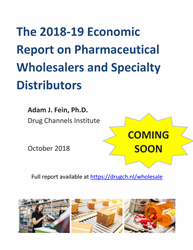GTN 2018 - CBI’s Gross-to-Net Summit
November 15-16, 2018 | Philadelphia, PA
www.cbinet.com/gtn
With the total value of off-invoice discounts and rebates increasing over the last few years, it is pivotal that pharmaceutical and biotech manufacturers stay on the forefront of gross-to-net management.
CBI’s GTN Summit, now in the 8th year, is the first step toward positioning your organization for success in the years ahead.
You can download the complete agenda here.
The meeting is coming up on November 15-16 at the Hilton Philadelphia at Penn’s Landing and features expert perspectives from companies such as Adamas, Amgen, Amneal/Impax, Astellas, BMS, Chiesi, Daiichi Sankyo, GSK, EMD Serono, Insmed, Medac Pharma, Merck, Sandoz, Spark Therapeutics, Sunovion, Takeda and more, all ready to share their insights into strategic forecasting, accounting estimates, analytics and finance reporting strategies, specifically for life science companies.
Hot Topics on the Agenda Include:
- Benchmarking and survey data illustrating company best practices for GTN management
- Advanced analytics, new technology and accurate data sets for efficiency and reduced revenue leakage
- Real-time analysis of the President’s ‘Patients First’ plan and the state of play for coupons, co-pay programs, accumulators and rebates
- Industry insights on Coverage Gap changes, drug pricing and transparency laws
- Current and future trends in revenue management and value-based contracting
- Strategies for new product launch forecasting and financial planning and financial
- GTN models for product returns and pipeline accruals
- Profitability strategies when negotiating contracts with payers
- Emerging issues with government programs and Medicaid calculations
Visit
www.cbinet.com/gtn for further details and to register. Drug Channels readers will save $400 off of the standard rate when they use
discount code QZD886 and register prior to September 28th.*
CBI will see you there!
*
Cannot be combined with other offers or used towards a current registration. Cannot be combined with special category rate or non-profit rates. Other restrictions may apply.
The content of Sponsored Posts does not necessarily reflect the views of Pembroke Consulting, Inc., Drug Channels, or any of its employees.












